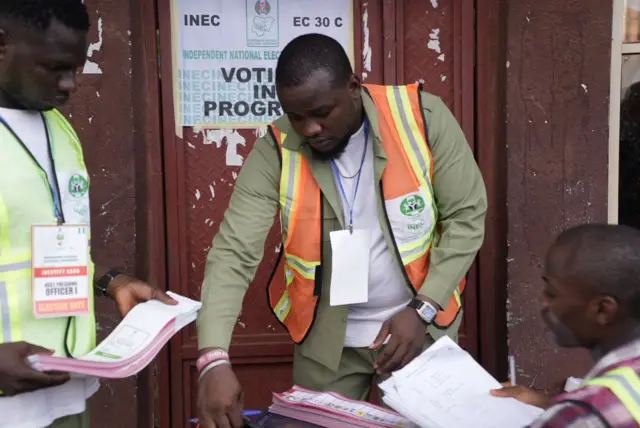Voting has officially ended in the Anambra governorship election, with sorting and counting of ballots currently underway across the state.
The process began around 2 p.m. in some polling units, particularly in units 10, 02, and 03 of Amawbia, Awka South Local Government Area (LGA). Other areas commenced the exercise later in the afternoon.
Saturday’s poll was largely peaceful, with no reports of violence in any polling units. However, several candidates and observers raised allegations of vote-buying.
John Nwosu, the governorship candidate of the African Democratic Congress (ADC), accused the ruling All Progressives Grand Alliance (APGA) of engaging in vote-buying. Similarly, the All Progressives Congress (APC) candidate, Nicholas Ukachukwu, alleged intimidation of his party agents in some parts of the state.
Incumbent Governor Charles Soludo of APGA expressed concern over alleged attempts to manipulate results but said he remained confident of victory.
“The only thing we hear that is actually a concern—and we hope won’t happen—is that one party (he laughs) has written results to swap during the collation process,” Soludo said after casting his vote. “We hear they have even had meetings with INEC not to upload the results so that they can have the opportunity to manipulate the results.”
Peter Obi, the 2023 presidential candidate of the Labour Party (LP), also condemned widespread vote-buying after touring several polling stations.
“I have moved around, listened, and observed what’s happening. What you see predominantly is vote-buying on a scale of ₦30,000, ₦20,000, ₦15,000,” Obi said. “The question I ask is this: a young person who is unemployed—if he sells his vote for ₦30,000, what will he be paid next month when there’s no election?”
A civil society coalition, the Situation Room, also reported instances of vote-buying, prompting monitoring by the Economic and Financial Crimes Commission (EFCC). Minor glitches with the Bimodal Voter Accreditation System (BVAS) were observed but did not significantly disrupt the process.
According to the Independent National Electoral Commission (INEC), a total of 2,802,790 registered voters were expected to participate across 5,718 polling units. Sixteen candidates are contesting the election.


